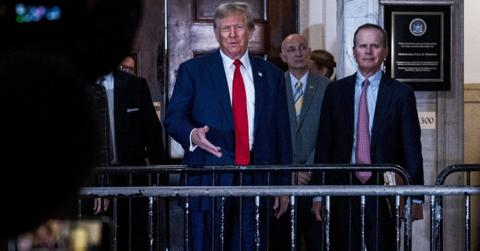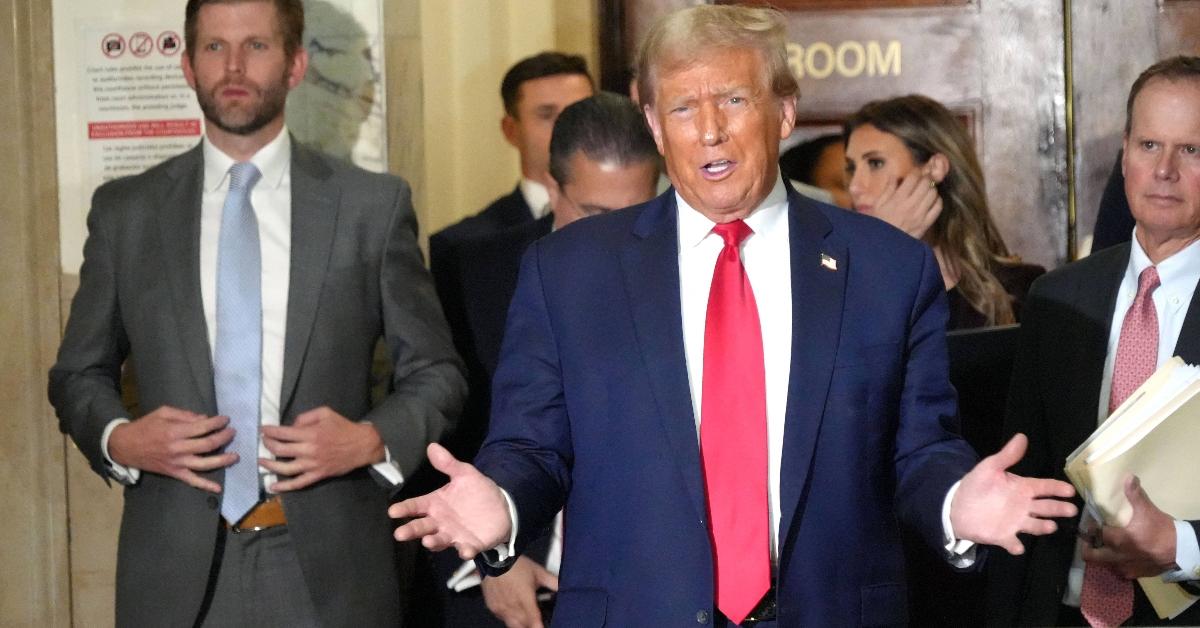Donald Trump Has Been Sentenced to Unconditional Discharge — What Does That Mean?
"That means no prison time, no fine, no community service, no probation, no nothing."
Published Jan. 10 2025, 12:54 p.m. ET

After Donald Trump was once again elected president back in November 2024, the question on everybody's mind was: What about those pesky felony convictions? The President-elect was convicted of 34 felony counts of falsifying business records in May 2024 after an entertaining six-week trial. A few days before his sentencing on Jan. 10, 2024, the Supreme Court voted to allow the proceedings to continue. If you can believe it, Justice Amy Coney Barrett agreed with the court’s three liberal justices.
Trump did not appear in-person at the Manhattan Criminal Courthouse in New York City. Instead, he opted for a virtual session from his home in Florida. Prior to Trump's sentencing, prosecutor Joshua Steinglass reminded the court that, "This defendant has caused enduring damage to the public perception of the criminal justice system," per CNN. Judge Juan Merchan then handed Trump a sentence of unconditional discharge. Here's what that means.

What does unconditional discharge mean for Donald Trump?
The President-elect received essentially no punishment after his conviction, which is a Class E Felony offense, reports Politico. Although he could have received up to four years in prison and a fine. Instead, "the case is over, the conviction stands, and no further conditions attach," said Barbara McQuade, a former U.S. attorney and law professor at the University of Michigan. "That means no prison time, no fine, no community service, no probation, no nothing," she added.
There may not be any prison time for Trump, as it pertains to this conviction, but there are consequences. "There is always a loss of rights in connection with a conviction," Sarah Krissoff, a former federal prosecutor, told the outlet. In New York, Forida, and the District of Columbia, a person with a felony is unable to purchase firearms. Depending on the state, a felon cannot vote though Trump was able to vote in Florida.
According to Jeremy Saland, a criminal defense attorney and former Manhattan prosecutor, this sentence is not very common. "I can’t remember a time where I either offered that as a prosecutor, or I engaged in conversations about unconditional discharge as a criminal defense attorney," he said. In the case of a conditional discharge, most judges might say don't get arrested again then will order community service or a fine. That wasn't the case for Trump who at the end of the day, is still a convicted felon.